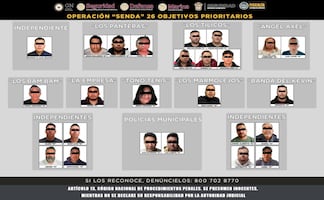Pan dulce
is a variety of sweet bread produced in Mexico. It is popular among Mexicans, especially during breakfast or at dinner time.
The Mexican sweet bread recipe calls for flour, sugar, salt, water or milk, butter, eggs, vanilla extract, and yeast. The dough is rolled and cut into different shapes.
Some of the most delicious and popular varieties include conchas , orejas , corbatas , garibaldis , besos , cuernos , and polvorones .
Pan dulce
is characterized by its soft and spongy texture, as well as its vanilla flavor. Hot chocolate , coffee , or atole are the best options to pair with these Mexican delicacies.
Recommended: Pan de elote, a quick and easy dessert to make during quarantine
These are the must-try pan dulce varieties:
1.Concha

Concha
is perhaps the most popular sweet bread in Mexico. The spongy bread is covered with a thin layer of lard, icing sugar, and flour. The two most popular flavors are vanilla and chocolate; however, you can find all types of flavors now, such as Nutella and matcha. The layer that covers the concha imitates the stripes found in seashells.
2. Oreja

The sweet bread resembles an ear. It was undoubtedly inspired by French pastries called “ Palmiers ” or “ Coeur de France .” This variety is made using flaky pastry, which is then sprinkled with sugar.
3. Besos

Besos
, which translates to “kisses,” is a delicious type of sweet bread. Bakers use two round pastries and then fill them up with jam or chocolate and then sprinkle them with powdered sugar. In the end, the pastry resembles a kiss.
4. Cocol

This is one of the oldest pan dulce varieties in Mexico. The dough has a piloncillo and anise flavor which is rolled into a diamond shape and sprinkled with sesame seeds.
The word cocol derives from the Nahuatl word “cocolli,” which means feud or anger.
5. Garibaldi

These are small cakes covered with apricot jam and topped with small sugar sprinkles. Rumor has it the Laposse family invented them. Back then, the Laposse family owned El Globo , one of the oldest and most popular bakeries in Mexico.
The head of the Laposse family was a great admirer of Giuseppe Garibaldi ; therefore, this delicious sweet bread is named after him.
Garibaldis
became so popular that other bakeries tried to imitate them.
6. Polvorón

The polvorón is a small and crunchy cookie. It is sprinkled with icing sugar or granulated sugar.
7. Corbata or Moño

This type of sweet bread resembles a bow or bowtie. They are made using Danish dough. The spongy bread is sprinkled with granulated sugar.
8. Galletas

Mexican cookies are usually topped with colorful sprinkles. They are very soft and they crumble easily.
The recipe calls for flour, butter, eggs, and vanilla. They are a favorite among children paired with a glass of milk.
9. Ojo de Buey

This variety resembles the eye of an ox and it originated in Chinese coffee shops. This delicious sweet bread combines two textures: a spongy bread at the center surrounded by flaky bread.
10. Banderilla

This type of bread is golden brown and crunchy. Bakers use flaky pastry and cut it into rectangular shapes.
Recommended: Churros in Mexico City
The story behind pan dulce
According to experts, Mexico began producing bread and pastries after colonization , as the Spanish first brought flour to the country.
Mexican chef Yuri de Gortari has explained both sugar and flour arrived in Mexico along with colonizer Hernán Cortés, who granted Rodrigo de Paz a permit to open a mill in the Tacubaya area.
However, the bread produced by the Spanish was bland, and the locals preferred to eat tortillas. Nevertheless, French and Italian immigrants arrived in Mexico, bringing their delicious pastries with them during the 17th and 18th centuries. The French brought brioche and other delicious pastries that were accompanied by a cup of coffee. This led to the Mexican tradition to eat bread and coffee in the morning.
By the 20th century, it was common to find bakeries and pastry shops throughout the country. Moreover, convents and Chinese coffee shops also played an essential role in the consumption of pan dulce .
gm
Noticias según tus intereses
[Publicidad]
[Publicidad]














